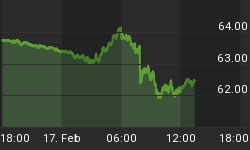In yet another sign that the economy isn’t poised for a quick bounceback even if researchers produce an effective COVID-19 vaccine, many companies are considering permanently laying off furloughed workers and taking other steps to make cost-cutting measures permanent.
Many companies beat earnings expectations in Q2. According to CNBC, the average company outperformed analyst estimates by 22%. That’s significantly higher than the historic norm of a 3% beat. But top-line revenue only exceeded estimates by 1%. Companies boosted revenues by significantly cutting costs.
And many analysts think many of these cost-cutting measures will become permanent. That doesn’t bode well for economic growth.
For instance, companies have significantly cut travel. One executive told CNBC they are looking to reduce travel expenses permanently. “We just don’t need to necessarily make the trips that we’ve historically made.”
This reduction in travel will further cripple airlines and hotels already reeling from the travel restrictions imposed during the pandemic. That means more layoffs and staff reductions. Boeing recently announced it plans to offer further voluntary buyouts to its employees, extending its workforce cuts beyond the original 10% target unveiled in April.
More significant is the cut to payrolls.
As the pandemic unfolded, many companies temporarily furloughed workers. Now, as the economic realities begin to sink in, companies are letting a lot of those workers go for good. Several executives interviewed by CNBC said they were moving forward with permanent layoffs. The head of a large transportation company said about half of its furloughs were now permanent headcount reductions. Spirit AeroSystems’ CEO told CNBC the company is now making the layoffs of thousands permanent after the Boeing/Airbus cuts.
As Sentieo Head of Research pointed out, this will have ripple effects on the economy.
You can add this to the litany of signs that the damage done to the economy by the government shutdowns are far deeper and far-reaching than most people want to admit. Businesses are shutting down and bankruptcies are at a 10-year high. Americans owe billions in back rent. There is an increasing number of mortgage delinquencies. There is a rising number of over-leveraged zombie companies. And a tsunami of defaults and bankruptcies are on the horizon.
In effect, we’re witnessing a permanent contraction in the US economy. That means that even if we deal with the coronavirus, the economy isn’t going to simply spring back to what it was before. There won’t be anything left to spring.
And yet, most of the mainstream still seems convinced that with a little more stimulus and a coronavirus vaccine, everything will be just fine. But as we’ve said over and over, curing the coronavirus won’t cure the economy. And the government “help” is only making things worse in the long-run.
By Zerohedge.com
More Top Reads From Safehaven.com:

















